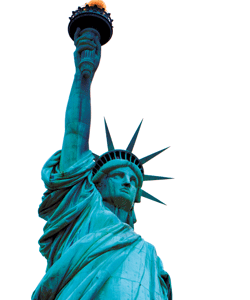I am afraid that the America of my youth has died.
My parents and I landed at the Mid-Continent International Airport in Kansas City in late December 1971. We carried with us a few suitcases and hopes for a promising future in the form of three green cards and two offers for mom and dad to serve as residents at Trinity Lutheran Hospital. Our flights from Mumbai, London, and New York’s JFK airport were long but not difficult, and my parents looked forward to their jobs and the exciting adventures that came with our move to the U.S.
For a long time, such a move was impossible. Riding waves of anti-Asian propaganda and strong anti-immigrant sentiment, the Asiatic Barred Zone Act of 1917, like its better-known predecessor, the Chinese Exclusion Act of 1882, had prevented for decades the entry of individuals from India, Afghanistan, Myanmar, and the Arabian Peninsula as well as countries in Central Asia and the Polynesian Islands. Only after the passage of the Immigration Act of 1965 were families like ours allowed to migrate to the States.
After their residencies and the birth of my sister Preeti ’96, my parents moved us to Montgomery, Alabama, where my father helped to start the neonatal intensive-care unit at Baptist Hospital and my mother worked as a family-practice physician at Maxwell Air Force Base. Dad saved the lives of thousands of premature infants, evidenced, in part, by the many Caucasian and African-American babies that were named after him; mom was the primary-care doctor for several hundred service members and their families. Even in Alabama, the former bastion of Jim Crow, my parents were able to create a happy life for us; they provided their three kids—with the addition of my sister Sonali ’00, M.D. ’04—a comfortable home in a safe neighborhood and access to good schools and a pool and two dogs, to boot. And despite being among the few Asian Americans in our grade and the first children of immigrants many of our neighbors or classmates had ever met, we were treated with kindness and affection by most folks we encountered.
I fear that the era of openness and welcome is history.
Anti-immigrant bias has become commonplace in our country today, and hate-fueled violence against Asian and South-Asian Americans, Muslims, Latinx, and other people of color is growing at an alarming rate. In February 2017, Srinivas Kuchibhotla was killed near my hometown of Kansas City. Before shooting Kuchibhotla and his friend Alok Madasani, the perpetrator yelled racial slurs as he told the two to “get out” of his country. The incident and the many other acts of hate against South Asians in the past eighteen months have raised concerns about the vulnerability of immigrants like them. As Indian immigrants living in Kansas City, Kuchibhotla and his wife were not very different from my father and mother; they spoke English with an accent, prayed to a Hindu god, and enjoyed watching Bollywood movies on weekends.
Private actions alone have not spurred the anti-immigrant fervor taking over our country. Xenophobic rhetoric from our politicians, along with actions from law enforcement and federal agency officials, have played a major role. Our current president has referred to Mexicans as “rapists” and certain groups of immigrants as “animals” who “infest our country” and has called for a ban on entry of all Muslims into the United States. On May 7, the Trump administration announced a policy crafted by White House senior policy adviser Stephen Miller ’07 to separate immigrant children from their parents at the border, even when those families have sought to enter as asylum-seekers. For a time, some 2,300 immigrant children, including infants and toddlers, were placed in internment camps without their mothers and fathers. Until the moment of removal by border patrol officers, these young children looked exactly like I did upon entering the U.S.: tired and a bit disheveled, but safe in parents’ arms.
I fear for my children’s future.
Living in Los Angeles, a county in which 35 percent of its residents are immigrants, I generally did not worry about my safety or that of my husband, Shai ’91, and our children. But, recently, the daughters of a friend were verbally assaulted and threatened as they were walking their dog in an L.A. suburb. Two white men in a pickup truck yelled to the young girls, “Go back to your f---ing country.” The girls ran home, crying and scared of what might happen to them at the hands of these men. Like our daughters, they are U.S.-born citizens of South-Asian descent. The fact that this happened in my liberal mecca shook me. I worry even more because our kids will soon go to college and perhaps to graduate school. Then they will seek jobs that may very well take them to parts of the country where they will be even less welcome because of how they look, because of who their parents are.
I fear that a story like mine, in which an immigrant child could—with the support of her family and encouragement of her friends and teachers—work hard, do well in school, and attend a university like Duke, will cease to be a reality for so many young people. And, more important, I am afraid that the United States will return to an earlier time, that of 100 to 150 years ago, when white nationalist propaganda and xenophobia led to racial exclusion policies that drove out thousands of people of color and prevented millions like my parents and me from entering.
I am afraid that history will repeat itself.
Kulkarni ’91 is executive director of Asian Pacific Policy and Planning Council (A3PCON), a coalition of more than forty Asian Pacific-Islander (API) organizations that serves and represents the 1.5 million APIs in Los Angeles.

Share your comments
Have an account?
Sign in to commentNo Account?
Email the editor